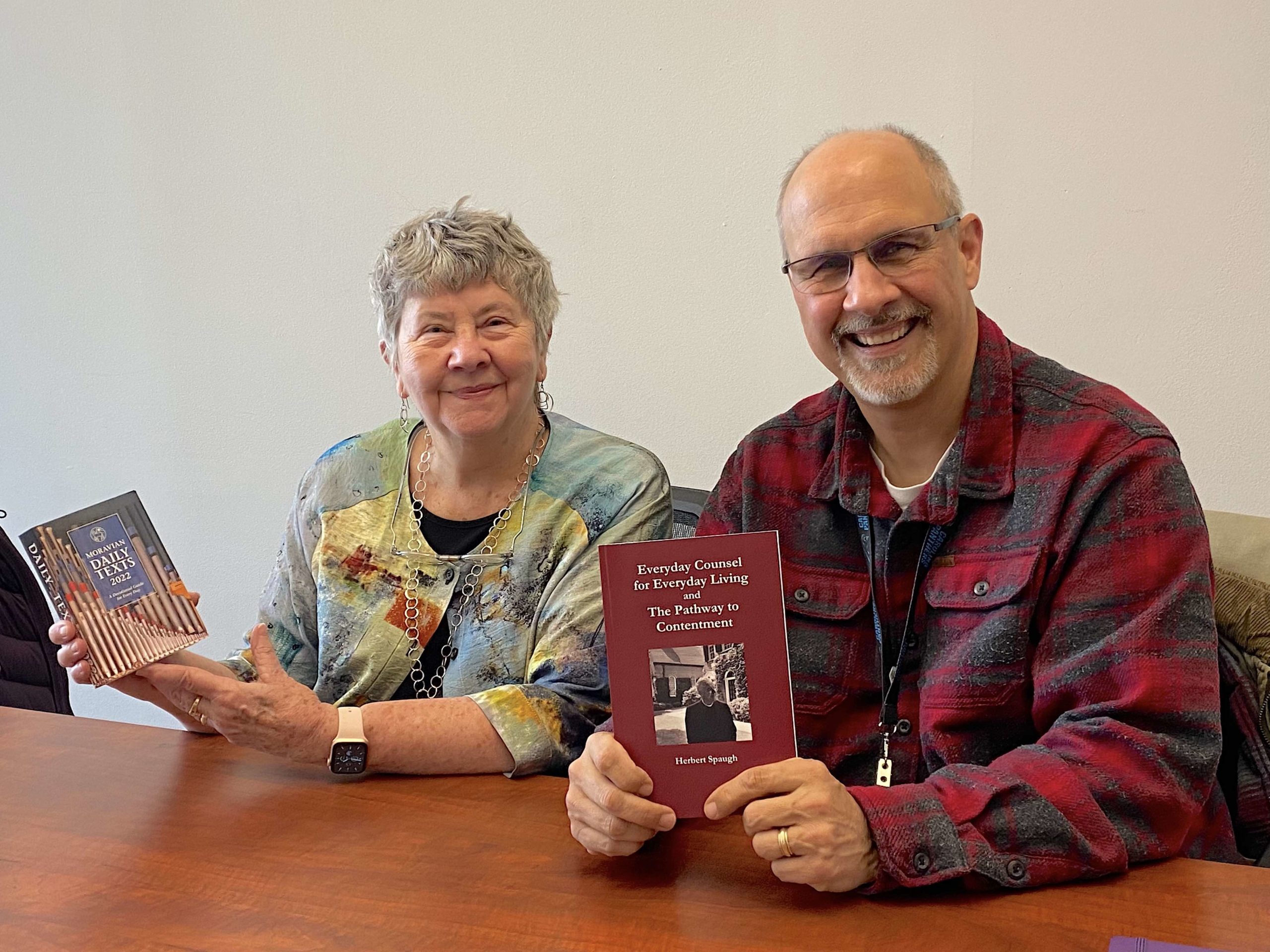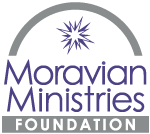
“Community-funded ministry has more freedom to be creative and can do more of what’s necessary than the state can provide,” said The Rev. Jeff Carter, chaplain under call by the Moravian Church in America, Southern Province working for the Forsyth Jail and Prison Ministry.
Your gifts make it possible
Your gifts to the Moravian Ministries Foundation in America (MMFA) Prison Ministry Field of Interest Fund on the Moravian Day of Giving and throughout the year support that work by providing great reading and devotional materials to inmates in Forsyth County. Last year Friends of Moravian Prison Ministry received a grant for $1,750 to purchase copies of the Moravian Daily Texts 2022, Everyday Counsel for Everyday Living, and The Pathway to Contentment, written by Moravian bishop, The Rt. Rev. W. Herbert Spaugh. Carter hands out 5 to 8 copies of these devotionals to inmates each week.
Moravian presence
“We feel it is very important for Moravians to have a strong presence here,” said Margie Lamb, chair of the Friends of Moravian Prison Ministry, the organization that raises the funds to cover Chaplain Carter’s salary. “Moravians were the original settlers of this region. We must be faithful to Christ’s call to love these neighbors. They need a chaplain. They deserve to be reached with the good news of the gospel. And this work lifts people up.” Friends of Moravian Prison Ministry emerged as a way to continue prison ministry following Moravian Church ministry infrastructure and budget changes in 2012 – 2013.
Carter is particularly fond of the Moravian devotionals because he says they are “true, but simple.” The works written by Spaugh address the unique challenges of addictions, which many inmates face.
“They’re going to get out one day, and we want them to be better prepared for success than when they were incarcerated,” Carter said.
Spiritual readiness
That preparation for release includes spiritual tools and counseling, as well as tangible help with transitional housing, phone access, financial management training, and transportation for 2 months. Even while some prisoners are still incarcerated, they benefit from the “Transition to Work” program. They are able to work as they finish their sentences. These holistic programs are designed to prepare inmates for success after release. And they do work, according to Carter.
Recidivism rates (the likelihood that a convicted criminal may reoffend) in general are quite high, as much as 60%. But, Carter says the rate for inmates who have the tools for success upon release can be as low as 7%. Spiritual, physical, and financial readiness, through programs such as “Transition to Work,” make a difference.
“Everyone deserves a second chance,” said Lamb. “But it’s often a first chance for many of these neighbors.”










